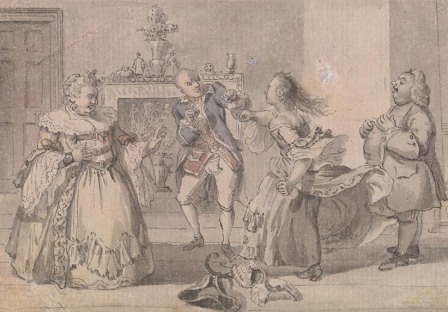Alice Dreger explains why the battle being waged among bioethicists over the SUPPORT trial is not just about research ethics. It’s also very much about the “profession” of Bioethics.
________________________________________________________________
On June 26, 2013, the New England Journal of Medicine (NEJM) published a letter organized by Ruth Macklin, Lois Shepherd, and me, signed by a total of 45 physicians and ethics scholars, including the editor of this blog. It concludes that the U.S. Office for Human Research Protections (OHRP) was right when it found that parents who had agreed to enroll their premature babies in the SUPPORT trial were inadequately informed of the risks.
SUPPORT had an important goal: trying to sort out what respiratory interventions might help or harm very premature infants. (I’ve provided an FAQ on SUPPORT here.) But, like the OHRP, we found that the consent documents failed to warn parents of the very risks the study was designed to track.
Our letter responds to an earlier NEJM letter from 46 “scholars and leaders in bioethics and pediatrics” with Benjamin S. Wilfond and David Magnus as lead-authors. That letter argued that the OHRP’s determination on SUPPORT was wrong. Although Wilfond et al. “acknowledge[d] that the permission forms could have been improved,” they wanted the OHRP to back off.
Curiously, the NEJM’s stated rules for letters to the editor indicate that letters “must not exceed 400 words” and “can be signed by no more than three authors.” Yet the NEJM allowed Wilfond et al. over 500 words and 46 signers. After some back-and-forth with the editor, we were allowed 400 words and our 45 signers. Unlike Wilfond et al., our letter came slapped with a special “editorial note” pointing the reader to four previous NEJM publications disagreeing with our standpoint.
The rule-busting and asymmetrical treatment of these letters speaks to the NEJM editorial office’s understanding of the stakes: SUPPORT was an NIH-funded trial involving some 23 institutions, so if the OHRP determination of inadequate consent stands, many major research institutions and the NIH itself will be marked as having acted unethically.
But it would be naïve to conclude that the battle being waged in the NEJM over SUPPORT by the two large groups of bioethicists is only about medical science, regulation, and research ethics. I think it’s pretty clear: the battle is also over Bioethics. It is a battle over a “profession” that still lacks a clear identity but that has been starting to see a tense coalescing of two basic types: those who stand ready to defend the medical/research industrial complex; and those who stand ready to fight that complex to defend patients, medical research subjects, and industry-resisting doctors and researchers.
You can guess which NEJM letter goes with which group. Mind you, the letter-signers don’t all easily fit into the camps their letters would seem to represent. Yet it appears that Wilfond et al. wanted to hastily reassure the NIH and medical schools that bioethicists can and will stand by their side. Their letter promotes a non-threatening vision of “bioethics” as ever more discussion in lieu of action: “We stand ready to participate in any such discussions to assist the OHRP[…]” Right, that’s what we do: assist with discussions.
Witness also the remarks of John Lantos (a signer of Wilfond et al., and the chief defender of SUPPORT) following the OHRP’s announcement that it was backing off on its enforcement actions in SUPPORT: “We should all be grateful that the OHRP has recognized the complexity of these crucial issues and taken the lead in opening a public discussion. Now, the real interesting work begins.”
Hmm. I happen to think—and I have the sense many others who signed the Macklin letter also think—that the “real [sic?] interesting work” of a federal ethics oversight body should be in actually doing something when they find parents were misinformed about how their babies might fare in a study. But those of us who believe in Bioethics as primarily pro-patient and pro-subject action are increasingly positioned at the margins. This is exactly why we see groups like Impact Ethics forming—because there’s no logical place for us elsewhere in the profession, where talk is rich and action “transgressive.”
The way SUPPORT has played out so far shows just how big a wall we are up against when we try to be interventionalist. The NIH, many of the big guys in Bioethics, and NEJM all lined up together – NIH and the big guys in bioethics responding in tandem, in NEJM, in a unified voice. One of the authors of the NIH’s response to the OHRP has even referred to that response and the Wilfond letter as “kind of, in some ways, partners.”[i]
Coincident with these two letters’ publication, an announcement came from the OHRP that it was backing down. So, could it be that even the OHRP is on their side? Theresa Defino of the Report on Research Compliance (RRC) has shown just how little meaningful work the OHRP seeks to do nowadays. It’s an open secret that, since Jerry Menikoff has come in to lead the OHRP, the OHRP seems to be more about protecting research than protecting research subjects. In the latest issue of RRP, Defino has documented Menikoff shamelessly seeking reductions in funding and actively planning fewer investigations.[ii] Maybe OHRP acted on SUPPORT because it was just too egregious a case to let go.
If ever “Impact Ethics” was needed….
Alice Dreger is Professor of Clinical Medical Humanities and Bioethics at Northwestern University Feinberg School of Medicine, Chicago, Illinois.
[i] Alan Guttmacher quoted in Theresa Defino, “HHS Asks Oversight Agency, NIH to ‘Align’ about Disputed Study,” Report on Research Compliance, vol. 10, no. 7 (July 2013): 4-5.
[ii] Theresa Defino, “SUPPORT Backlash Prompts Meeting, Guidance as Debate Moves Beyond OHRP,” Report on Research Compliance, vol. 10, no. 7 (July 2013): 1-6.





[…] https://impactethics.ca/2013/06/27/support-and-the-question-of-what-it-means-to-do-bioethics-2/ […]